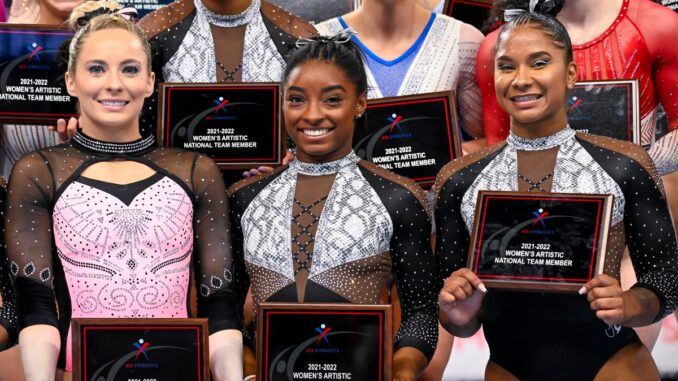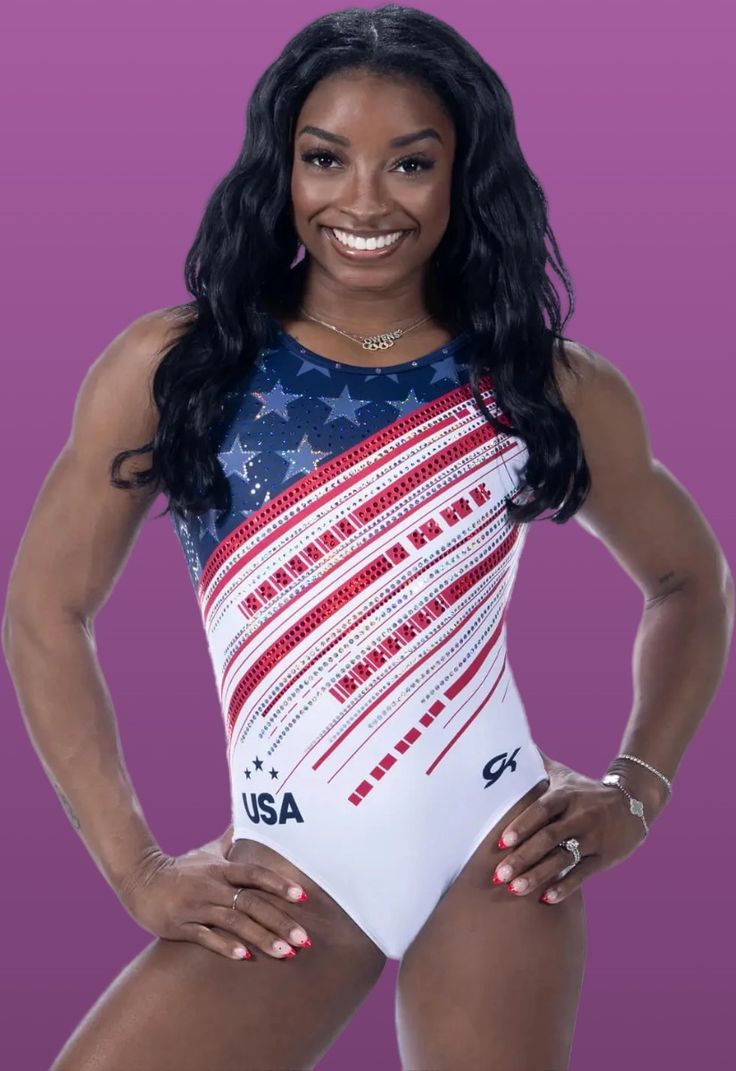
Simone Biles wasn’t afraid to dive headfirst into controversy to call out behavior she found toxic. Riley Gaines—a former college swimmer who has become an advocate for banning trans girls and trans women from competing in girls’ and women’s sports—drew Biles’ ire June 6, when she mocked the Minnesota State High School League. The league had turned off comments on an X post celebrating the 2025 Softball State Champion Champlin Park, whose 17-year-old star pitcher is trans. “Comments off lol,” Gaines wrote. “To be expected when your star player is a boy.”
In a June 6 X post, Biles called the 25-year-old Fox News pundit “truly sick” and “a sore loser,” seemingly in reference to Gaines tying for fifth place with Lia Thomas, a trans woman, in a race at the 2022 Women’s NCAA Swimming and Diving Championships. The gymnast, 28, also slammed Gaines for sowing division and punching down instead of using her platform to find a way to “make sports inclusive” or create “a new avenue where trans feel safe in sports.”
The world of sports often transcends the arena, with athletes becoming influential voices on social issues. One of the most talked-about conflicts in recent times is between Olympic gymnast Simone Biles and former swimmer Riley Gaines. Their public feud has sparked intense debates about fairness, inclusivity, and the future of women’s sports.
The Genesis of the Feud
The discord began when Riley Gaines, a vocal critic of transgender women competing in women’s sports, commented on a Minnesota high school softball team that included a transgender player. Gaines labeled the inclusion as unfair, igniting a firestorm of reactions. Simone Biles, a staunch advocate for inclusivity, responded sharply, calling Gaines “truly sick” and accusing her of being a “sore loser” .
The Clash Intensifies
The exchange quickly escalated on social media platforms. Biles criticized Gaines for targeting transgender athletes, suggesting she should focus on creating inclusive spaces rather than “bullying” them . Gaines fired back, calling Biles’s stance “disappointing” and accusing her of being a “male-apologist at the expense of young girls’ dreams”
The Nassar Controversy
The feud took a darker turn when Gaines referenced the Larry Nassar abuse scandal, suggesting that Biles’s support for transgender inclusion conflicted with her advocacy against sexual abuse in sports. This comparison drew widespread criticism for exploiting Biles’s trauma for political gain .
Public Reactions and Support
The public was divided. Some supported Biles’s call for inclusivity, while others sided with Gaines, arguing for fairness in women’s sports. Notably, actor Rob Schneider praised Gaines, calling her an “American hero” .
Biles Issues an Apology
Recognizing the need for empathy, Simone Biles issued a public apology for her personal remarks towards Gaines. She emphasized the importance of balancing competitive equity and inclusivity in sports and criticized the targeting of young athletes for public scrutiny Gaines Responds
Riley Gaines accepted Biles’s apology, acknowledging her status as the “greatest female gymnast of all time.” She invited Biles to support fair sports and a future for female athletes, emphasizing that young girls deserve the same opportunities she had

The Broader Debate
This feud highlights a larger conversation about the inclusion of transgender athletes in women’s sports. Advocates for inclusivity argue that sports should be accessible to all, regardless of gender identity, while opponents like Gaines believe that such inclusion compromises fairness for cisgender women.
The Role of Social Media
Social media has played a pivotal role in amplifying this debate. Platforms like Twitter and X have allowed athletes to voice their opinions directly to the public, bypassing traditional media channels. However, this immediacy can also lead to misinterpretations and escalations, as seen in the Biles-Gaines feud.
The Impact on Women’s Sports
The ongoing debate has significant implications for women’s sports. It raises questions about how to ensure fair competition while promoting inclusivity. Sports organizations are under pressure to develop policies that balance these often conflicting interests.
Looking Ahead
As the conversation continues, it’s clear that finding common ground will be challenging. Both sides have valid concerns, and the path forward will require open dialogue and thoughtful policy-making. The Biles-Gaines feud, while contentious, has brought these critical issues to the forefront of public discourse.
Conclusion
The feud between Simone Biles and Riley Gaines underscores the complexities surrounding the inclusion of transgender athletes in women’s sports. While their exchange was heated, it has sparked a necessary conversation about fairness, inclusivity, and the future of athletics. As society continues to evolve, so too must our approaches to these challenging issues.